For legal novices, the term “wrongful death” can be confusing. Doesn’t “murder” or “manslaughter” refer to the same thing? How can an attorney specialize in one but not the others? And where does this concept crop up in daily life?
As it turns out, Davana Law Firm has legal experts who specialize in this field. We can do more than define and describe it for you – we can help you to seek compensation. If you are seeking an experienced wrongful death attorney or looking for more information on the topic, contact Davana Law today. Our team, based in LA, will guide you through the process of building a case and fighting it in court. In fact, we require no fees until we win it. While no amount of money could make up for the loss of a loved one, a suitable claim can give you the time and emotional support to grieve.
Below, we describe the features of wrongful death lawsuits and how we build such cases:
What Constitutes a “Wrongful Death”?
In essence, a wrongful death claim applies when someone dies due to another party’s negligence, intentions, or actions. But where murder and manslaughter constitute criminal charges, wrongful deaths are civil ones. Thus, different courts try these cases.
Furthermore, we can separate wrongful and accidental deaths. To do so, the death must stem from an unforeseeable or unintended event (as determined by authorities). If no party besides the deceased acted “unreasonably” or “negligently,” the death is ruled accidental.
Common causes of accidental deaths include choking (on food, etc.) or blunt force trauma (from a falling object, etc.). Common causes of wrongful death include medical malpractice, product liability, elder neglect, and car accidents. Thus, intention plays a key role.
Making a Case
To establish a case, the plaintiff (usually the deceased’s estate) must meet the burden of proof. In cases of negligence, for instance, they must show that the defendant(s) owed the deceased a certain amount of care. In other words, the death was due to the negligence of the defendant.
Similarly, in medical malpractice, the plaintiff must prove that the defendant (a medical professional) failed to provide proper care. Again, the intention or responsibility for the deceased distinguishes wrongful death cases from accidents.
Whether the state brings criminal charges or not, the deceased’s estate may file a wrongful death claim. Since these cases are tried in separate courts, the outcome of one should not affect the other. Also, the standard of proof tends to be lower in civil rather than criminal cases.
Who Can File a Wrongful Death Claim?
Each state’s laws for wrongful death claims differs from the others. However, they all agree that the deceased’s “estate” (or their legal representative) makes these claims. Differences often come down to who composes the estate (or who had what relationship to the deceased).
Throughout the country, surviving spouses can make claims for lost partners. Similarly, minors and parents can make claims when the other suffers a wrongful death. States disagree on whether extended family members or romantic (but non-married) partners can file claims.
The damages a plaintiff may receive depends on the details of the claim. Generally, there’s an amount for the deceased’s “pain and suffering.” Additionally, charges for medical treatments, burial, loss of income or inheritance, and other items may be factored in.
Choose LA’s Finest Wrongful Death Attorney at Davana Law Firm
If you’re considering making a personal injury, automobile accident, or wrongful death claim, hire legal representation that puts your interests first. Davana Law Firm’s wrongful death attorney will guide you through the claim process and fight for your compensation. Get the time and space to grieve your loved one: call us today at (818) 501-1055 for a free case evaluation, or fill out our online form.


